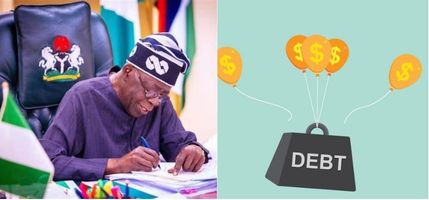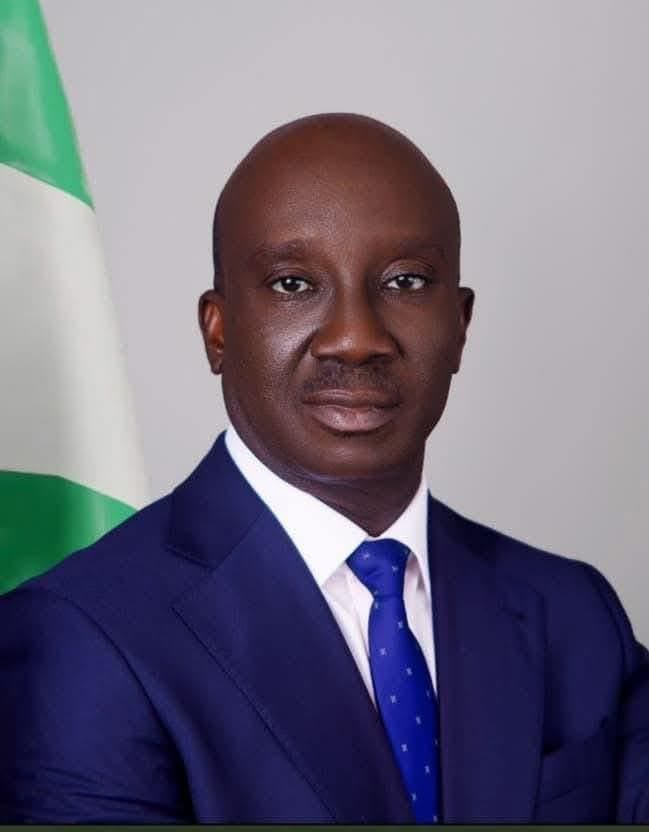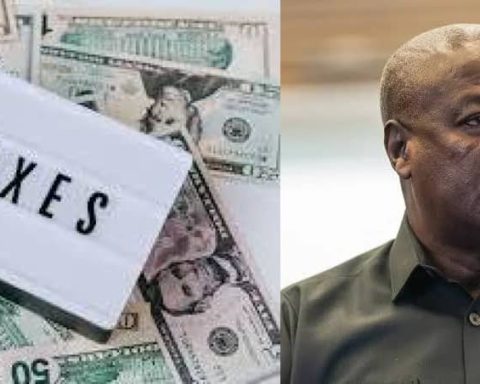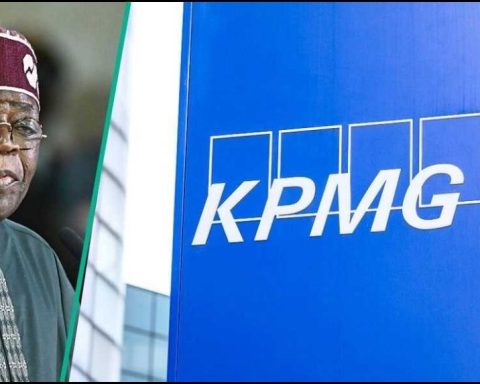As the current administration of President Bola Tinubu implements reforms to strengthen the economy, there are concerns about the persistent increase in debt stock.
Chief Economist and Senior Partner at SPM Professionals, Dr Paul Alaje, expressed worries that except there are significant economic interventions, Nigeria’s public debt may surpass N200 trillion before the 2027 general election.
Join our WhatsApp ChannelAlaje stated this while examining the state of Nigeria’s economy and what the current administration is doing to put it on a sustainable path.
Recent data released by the Debt Management Office (DMO) shows that the national debt has surged to N149.39 trillion (approximately $97.24 trillion) as of 31 March 2025. This marks a 22.8 per cent or N27.72 trillion year-on-year increase from N121.67 trillion recorded in the first quarter of 2024 and a 3.3 per cent rise from N144.67 trillion in December 2024 (the end of the last quarter of 2024). Out of the total debt, external debt increased by N344 billion from N70.29 trillion in December 2024 to N70.63 trillion ($45.98 billion) at the end of the first quarter of 2025.
The DMO data showed that on a year-on-year basis, it increased by N14.61 trillion or 26.1 per cent from N56.02 trillion ($42.12 billion) recorded at the end of the first quarter of 2024.
Alaje stated that the devaluation of currency increases the external debt burden.
He said that though many states are getting more revenues due to increased monthly allocation arising from the current administration’s economic policies, the question is, what is the impact on the economy?
He advised the Federal Government and state governors to ensure that the recurrent expenditure remains the same, while significantly increasing the capital expenditure.
“But is this what we are seeing? Are we seeing sporadic improvement in capital expenditure in the 37 sub-nationals?” Alaje asked during an interview on Channels Television’s Breakfast programme, Morning Brief on Thursday.
According to him, out of the 37 sub-nationals, including the FCT, 30 of them are using part of the revenue to service debts. “That is why you are not seeing them borrow money. We need to be very wary of the issue of debt because of money illusion,” he warned.
READ ALSO: N24bn Loan: Nigeria Trapped In A Vicious Cycle Of Debt – Atiku
He said that states that borrowed in dollars have recorded huge debt over the years because of currency devaluation.
“The more you devalue your currency, yes, you get more in revenue, but your debt will be huge, your debt will be intimidating over the years. Between now and before election in 2027, I can almost bet that except there are economic interventions, our national debt may surpass N200 trillion,” Alaje stated.
Government’s Borrowing Spree and Public Worry
Another data released by the DMO also showed that Nigeria spent N30.81 trillion on debt servicing in five years (between 2020 and 2024).
According to the data, the country earned N51.05 trillion as revenue during this period, of which 60.35 per cent was used to pay off debt, leaving only 39.65 per cent for capital expenditures and other recurrent line items.
Nigeria’s debt service expenditures dropped from N3.34 trillion in 2020 to N2.93 trillion in 2021, but surged to N3.76 trillion in 2022, recorded a marginal drop to N7.66 trillion in 2023. It finally jumped to N13.12 trillion last year.
The total debt figure is project is projected to reach N187.79 trillion by the end of 2025, given the rate at which the government is taking fresh loans.
President Tinubu had in May requested Senate approval for a new $21.5 billion external borrowing plan as part of the 2025–2026 borrowing strategy. He is also seeking a ¥15 billion Japanese loan and a €51 million grant.
The government has maintained that it has a low revenue problem rather than a debt problem, despite experts’ concerns that the nation’s debt profile is approaching an unsustainable stage.
Over the past two years, Nigeria’s debt has skyrocketed, mainly as a result of the government’s increased borrowing to offset budget deficits.
The nation’s external debt, for instance, rose by 83.89 percent between 2023 and 2024, from N38.22 trillion ($42.50 billion) in December 2023 to N70.29 trillion ($45.78 billion) in December 2024. From N59.12 trillion ($65.73 billion) at the end of December 2023 to N74.38 trillion ($48.44 billion) in December 2024, domestic debt also increased by 25.77 percent.
The Tinubu administration has implemented a couple of policies, including subsidy removal, and exchange rate reforms – harmonisation of the exchange rate windows and flotation of the naira, which led to devaluation of the currency.
The exchange rate experienced significant volatility after the June 2023 and June 2024 devaluation of the Naira, ranging from roughly N460 to N1500 per dollar, which made preexisting foreign obligations more burdensome.
READ ALSO: Concerns As Naira Depreciation Pushes Nigeria’s Debt To N149.39trn
The economic expert reiterated his stand that a managed floating exchange rate is better, arguing that Nigeria and other African countries cannot sustain full flotation of currency. According to him, “Over 50% of all African countries were affected between 2022 and 2024 because of the flotation of currency, more than half were affected.”
He called for the adoption of a single currency on the continent to feel the impact of the African Continental Free Trade Agreement (AfCFTA).
Still on the exchange rate, Alaje, while acknowledging that there is a relative stability of the naira in the foreign exchange market in recent times, emphasised that the ultimate solution lies in efforts towards scaling up exports in both oil and non-oil sectors to boost the country’s FX earnings.
On tackling high food costs as a major contributor to the headline inflation, the economic expert called for measures to boost food supply. He suggested creating special agro-processing zones, tackling insecurity, which has displaced many farmers and also addressing problems of infrastructure, such as power, to create an enabling ground for businesses to thrive.
Victor Ezeja is a passionate journalist with seven years of experience writing on economy, politics and energy. He holds a Master's degree in Mass Communication.














